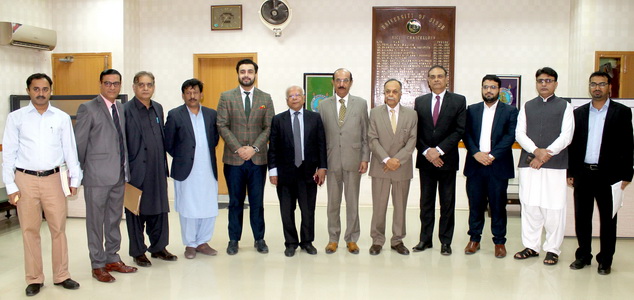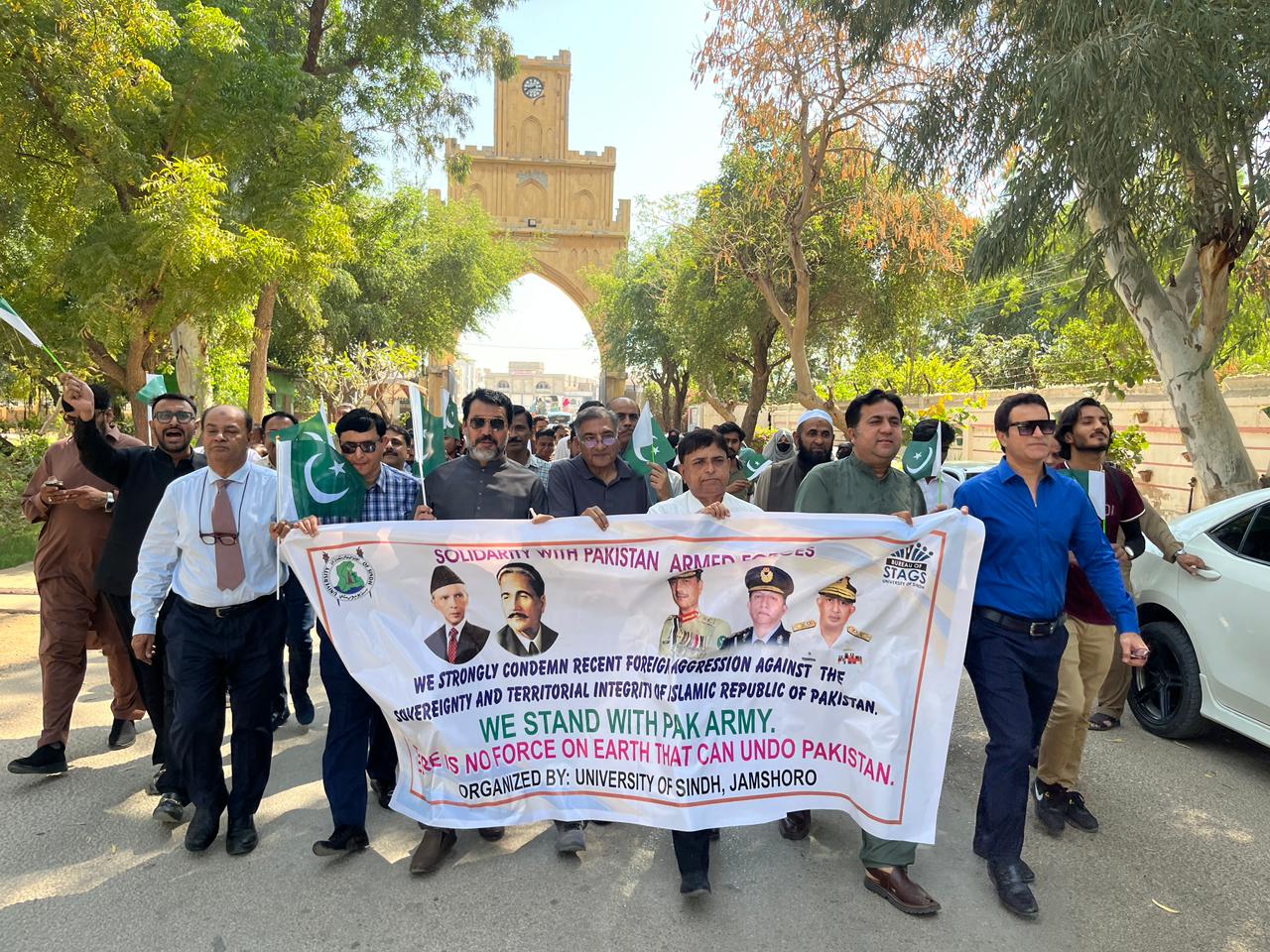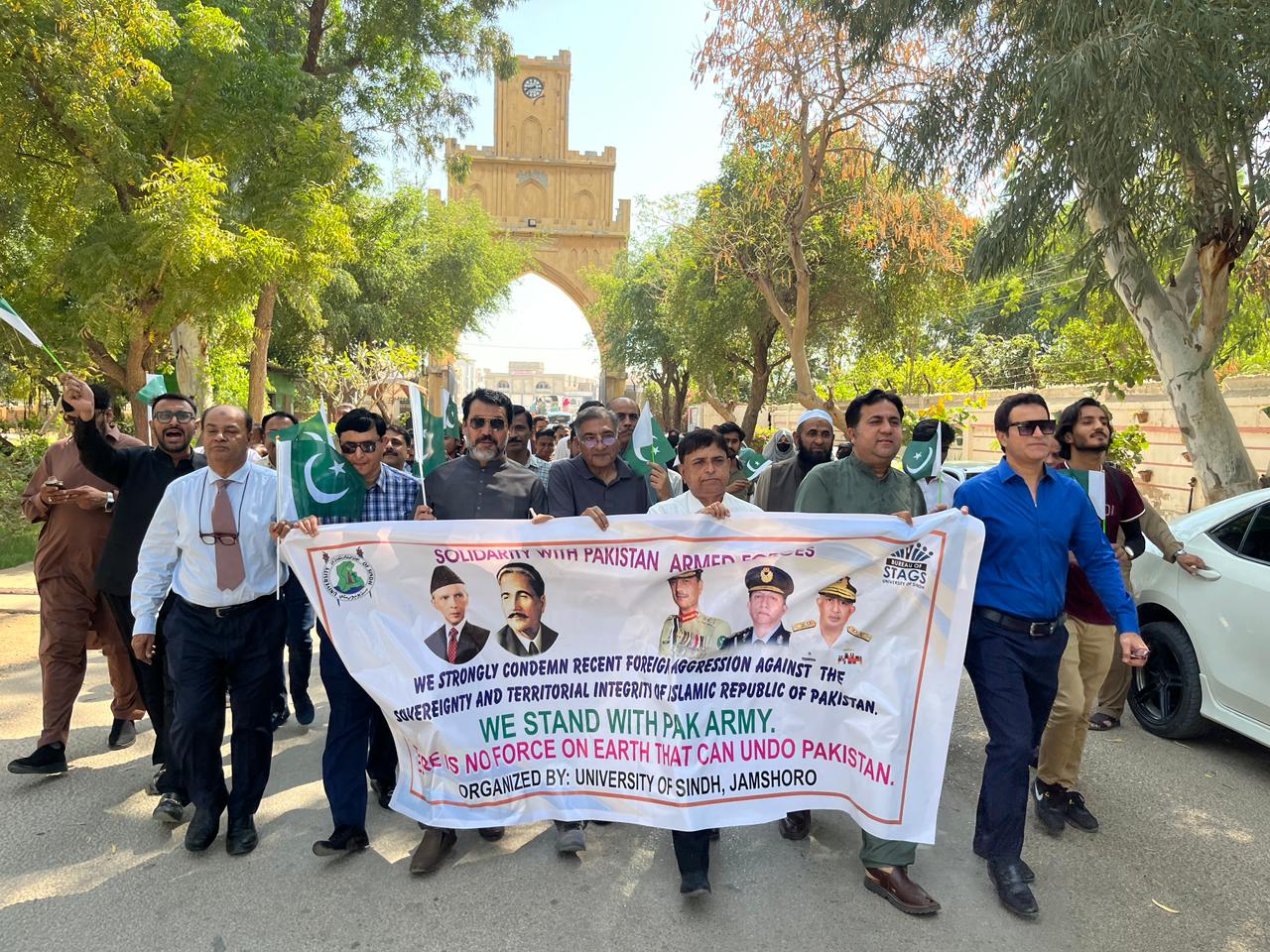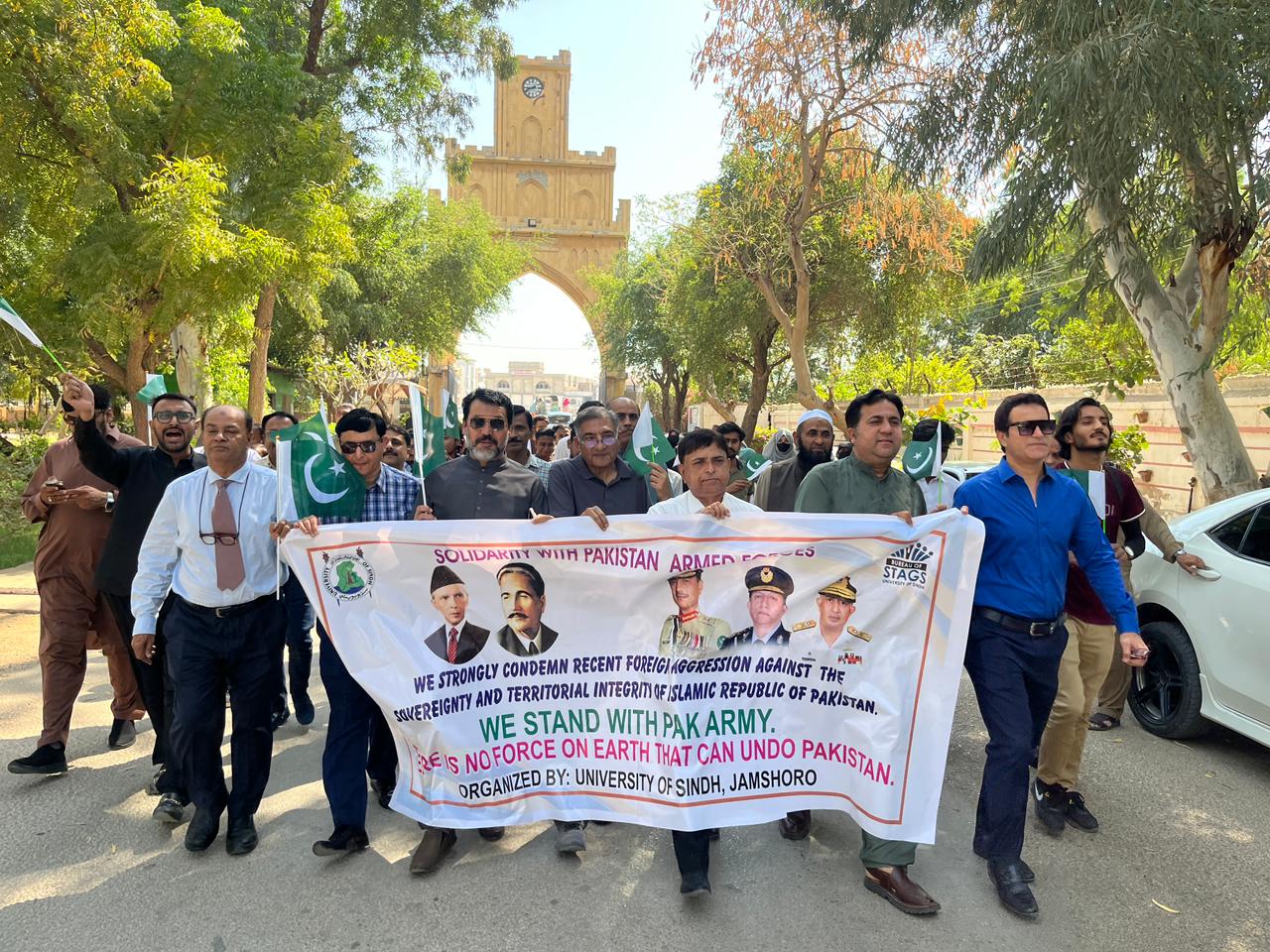
Scholars advocate increased female labor-force, micro-enterprise and collaborative corporate culture as antidote against socio-economic misery in Sindh
A highly thought-provoking, informative and insightful discourse came to Sindh University as its Bureau of Students Tutorial Guidance / Counseling Services and Co-curricular Activities (STAGS) in collaboration with JS Bank Limited and Oxford University Press, Pakistan organized an inspiring and extensively interactive panel discussion on the book “The Economy of Modern Sindh: Opportunities Lost and Lessons for the Future” with VC-SU Prof. Dr. Fateh Muhammad Burfat as event president, Adviser to the Prime Minister on Institutional Reforms and Austerity and former Governor State Bank of Pakistan Dr. Ishrat Hussain, President and Chief Executive Officer JS Bank Limited Basir Shamsie, Prof. Aijaz A. Qureshi and Nadeem Hussain as panelists; whereas Imran Haleem Shakih and Dr. Ghulam Ali Buriro facilitated the moot as moderators.
Dr. Ishrat Hussain, in his erudite deliberations said that merely writing of the book on the economy of Sindh was not enough; arguing that it was essential to build upon the book in form of holding of critical discourses on its contents among academia and students to cascade its import to the widest possible range of masses. “This philosophy has brought us to SU today”, Dr. Hussain asserted.
“Five motivations served as causative forces behind our inking of this book: i) As nation, we are a sizeable entity but without having recourse to tangible data evidence at micro level; ii) we do not also have any reliable textual reference on the economy of Sindh; iii) Government of Sindh also did not have tangible evidence base, upon which it could formulate policy frameworks; iv) there was no narrative in existence upon which a critical discourse based on reason, rationality, logic, facts and evidence could be set into motion, and v) lastly there was no trigger-material at hand to serve as impetus to spark authoring of more books on economy of Sindh dealing separately with each subject-head discussed in our book. Our book fills all these gaps”, Dr. Hussain elaborated.
Dr. Hussain sent alarm-wave to the audience when he shared that Sindh was ahead of other three provinces in per capita income at the time of partition by 55 percent in 1955, 30 percent in 1990, and 15 percent in 2014-15 and in 2019 it (Sindh) was lesser in per capita income to all the other four provinces of Pakistan. “This is shocking picture to weigh. We need to flip this phenomenon”, Dr. Hussain urged.
Dr. Hussain opined that Sindh was resource-rich with clear comparative advantages of having sea-ports, human resource talent, intellectual property pool, large tracts of irrigated lands, natural gas and coal reservoirs and a dynamic private sector, but all to no avail; because of their lack of knack to exploit those resources to their true potential. “I see urban-rural disparity, low ratio of female education, low female participation in labor-force, absence of cottage industry and small-scale market economy, and paucity of micro-economic sector i.e. dairy, fisheries, poultry, livestock, fertilizers and horticulture as causes behind socio-economic deterioration in Sindh. And I recommend immediate policy and urgent action interventions as a panacea to end these ailments”, Dr. Ishrat emphasized.
Dr. Hussain submitted sincere debt to Allama I.I. Kazi, Dr. M.A Kazi and Dr. N.A Baloch as his great benefactors and guides, adding that he felt especially delighted to have been back to his roots i.e. Sindh University where he once studied and then taught for short span of time.
Dr. Burfat, citing words of Quid-i-Azam argued that economic uplift would not be possible without women joining national work-force as they were the greater pocket of population in the country.
The Vice Chancellor announced sending the varsity’s commerce and business interns to local small town cottage industry sector with a view to research their problems and growth prospects.
“I am highly grateful to the distinguished panelists and JS Bank Limited leadership for bringing this high-power knowledge economy dialogue to SU. Our varsity faculty, social science researchers and students have greatly benefitted from this interaction,” Dr. Burfat observed.
The Vice Chancellor also eulogized the efforts of Director STAGS Dr. Sumera Umrani and her team towards successful organization of the event.
JS Bank President and CEO Basir Shamsie stressed upon bringing back industry to its original destinations in the wake of improved security and infrastructural landscape in Pakistan.
“Our capital that lies land-locked in form of lands without housing and real estate boom needs to be unlocked to usher economic development in Sindh. This is exactly what this book on economy of Sindh insists,” pleaded Mr. Shamsie.
Mr. Shamsie further said that those were the times of collaborative and partnership ventures. Quoting ‘Uber’ and ‘Careem’ as case studies, he argued that technology, human resource (driver), bank (finance) and government (infrastructure) put together formed a successful model of modern business.
Prof. Aijaz Qureshi said there was a dire need for academia and students from other universities in Sindh too to register their critical opinion on the contents of the book to advance discourse and find solutions to the problems portrayed and analyzed by them in the manuscript.
Nadeem Hussain proposed free female education in Sindh, minimization of urban-rural disparity and initiation of online entrepreneurial projects at mass level in the interest of economic boost in the province.
A vigorous inter-active question-answer session and souvenir-exchange episode brought the intellectually-enriching program to a close.


